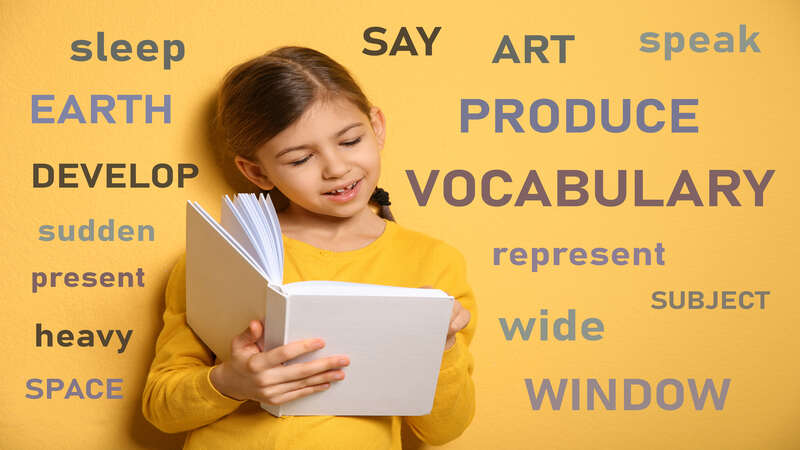
From the first cooing sound of your baby to the “ma-ma/da-da”, it is an immense feeling of joy and pride for any parent to hear their infant speak. After giving birth to your baby, you long to hear him speak and express himself to you. As your tot grows, his jabbering will become clearer and he will learn almost one new word every day. Language is an exclusive mode to express intentions, describe feelings, and understand other’s ideas. Research indicates higher IQ, reading ability, communication skills and scholastic achievements in kids with larger vocabularies. So why not build your child’s vocabulary using ten easy ways mentioned in the following lines?
10 Easy ways to increase your child’s Vocabulary:
- Read aloud: Children primarily learn by imitating their parents. You child will try to imitate the words and sounds you speak. Reading aloud stories and other articles from print exposes your child to rich language. He will come across new words, language structures and become prepared to read. This will also form good reading and listening skills in your baby
- Address your child as an adult:Don’t down-talk to your kid by baby-talking with him. Speak bigger rather than small similar-sounding words (when, where) which are confusing. Rare and sophisticated words intrigue kids. It draws their attention and they like the sound of long, new words
- Be proactive: Be sure to encourage your child to ask for clarification when he doesn’t understand something. Pause and describe. For instance, if your kid questions the meaning of “gigantic”, don’t simply answer “big” and end the conversation. This kills the curiosity. Explain using two-three sentences relevant to your child. You may say “The glass building at the end of the lane is gigantic and so was the elephant you saw in the zoo last week”
- Be more dramatic: Actions speak louder than words. Act out a story. Use appropriate gestures, facial expressions and tones. This boosts the interest of your child and facilitates understanding the meaning of words. You may clatter your teeth while saying “chilling cold” or model the word “frightened” by pronouncing in shaky voice to show that you are scared
- Be more descriptive: “Think aloud.” Spell out your actions to your tot. You may say “Mama is now heating milk in the microwave”. Share your own incidences or story with him. His vocabulary will benefit from hearing conversations about past and future. Remember, your child will not grasp words if you simply speak to him. The words spoken in meaningful contexts make an impression
- Establish word associations: Connecting new words with the existing vocabulary makes it easier to grasp and understand their meaning. For instance, he knows rain; introduce puddle, splash and rainbow. Similarly, make him familiar with Apple – fruit, kiwi – new fruit
- Build concepts: Conceptually related words make more sense and are easily retained. You make speak about flowers and mention rose, dandelion, hibiscus, jasmine, lavender etc. If your kid is more interested in cars, mention truck, scooter and cycle. Enact a story with toys saying “The truck’s tyre has gone flat”, “The truck is in garage for repair”, “You remember our car broke down and we got it repaired by Sam uncle?”
- Touch, feel and express: Children learn best when information is presented through multiple senses (e.g. touch, sight, sound, smell). Give him a bubble bath and introduce him to things that float or sink, sweet or citrus aroma, wet and slippery soapy water. When he falls, tell him about a bump or a bruise, the red and the blue, the pain and swelling. Such scenarios that elicits talk about feelings and healing are all terrific opportunities
- Be more interactive: Play “I Spy” with your child using words that describe an object and let him find it and vice versa. Play CDs, sing and dance along the humorous songs for kids. Such songs describe the routine activities and they provoke interest. You could use musical rhymes cds and enact and tap on the music. It increases the consciousness of your child about unfamiliar words. Use Pictionary to point and show new words. It deepens understanding of the word’s meaning
- Repeat: Expose your kid to new words frequently. It is necessary to repeat the new word in daily routine to reinforce the word and its meaning in his mind. If the new word is “delicious”, first define it in simple terms – delicious means it tastes good. Now tell him about the “delicious muffins mama is making” or ask him “What food you think is delicious?” The more you repeat the more likely your child using it
Lastly, do not bombard your child with too many new and big words; otherwise you will sound gibberish to him. Give him time to respond process and understand. Watch spelling bee contests or other such TV programs together. It is very likely for your tot to misspell or misunderstand words, correct with care. Fun and positive experience will enhance the interest of your kid in vocabulary and will make your proud.
